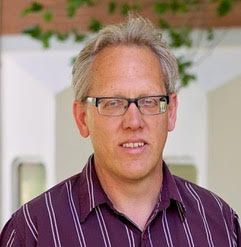Holonic Theory and Holistic Education
Article ID: 415
DOI: https://doi.org/10.30564/jiep.v1i1.415
Abstract
This paper presents the holonic theory, which is an attempt to develop in a single model the explanation of the evolution in the physic, biologic and cultural dimensions. The purpose of this development is to understand the traits of nowadays common holism, which is considered a necessary thinking practice in different domains, among them education. A phenomenological study has been developed connecting diverse noospheric holons. The results allow for a characterization of the holonic structure of a holistic consciousness act. This characterization is used to define holistic education: An education with the dimensions of preservation, profundity, projective action and span. The article can be read as a contribution to provide ontological and epistemological bases for going beyond the modern worldview and the widespread postmodern syncretism. These findings help in providing a framework for today’s holistic pedagogical debates and developments.
Keywords
Full Text:
 PDF
PDF
References
[1] References
[2] Wilber K. The theory of everything. Boston, MA: Shambhala; 2001
[3] Wilber K. Introduction to Integral Theory and Practice IOS basic and the AQAL map. AQAL Journal of Integral Theory and Practice 2005; 1(1): 1-38.
[4] Wilber K. The integral vision: A very short introduction. Boston, MA: Shambhala; 2007.
[5] Beck, DE., Cowan, C. Spiral Dynamics: Mastering Values, Leadership, and Change. New York: Wiley/Blackwell; 2005.
[6]
[7] Esbjörn-Hargens S. Integral Education By Design: How Integral Theory Informs Teaching, Learning, and Curriculum in a Graduate Program. ReVision 2005; 28(3): 21-29.
[8] Murray T. What is the Integral in Integral Education? From Progressive Pedagogy to Integral Pedagogy. Integral Review 2009; 5(1): 1-38.
[9] Laloux F. Reinventing Organizations: A Guide to Creating Organizations Inspired by the Next Stage of Human Consciousness. Brussels: Nelson Parker; 2014.
[10] Thomas B. Integral Leadership Manifesto. [Internet]; 2018 [updated 2018 Dec 10; cited 2018 Dec 16]. Available from: http://integralleadershipmanifesto.com
[11] Morrison K. Complexity theory and curriculum reforms in Hong Kong. Pedagogy, Culture and Society 2003; 11(2): 279-302.
[12] Morrison K. Complexity theory and curriculum reforms in Hong Kong. Pedagogy, Culture and Society 2003; 11(2): 279-302.
[13] Priestley M. Whatever happened to curriculum theory? Critical realism and curriculum change. Pedagogy, Culture & Society 2011; 19(2): 5.
[14] Priestley M. Whatever happened to curriculum theory? Critical realism and curriculum change. Pedagogy, Culture & Society 2011; 19(2): 221-237.
[15] Hudson B. Approaching educational research from the tradition of critical-constructive Didaktik. Pedagogy, Culture and Society 2003; 11(2): 173-187.
[16] Yates L. From curriculum to pedagogy and back again: Knowledge, the person and the changing world. Pedagogy, Culture & Society 2009; 17(1): 9.
[17] Yates L. From curriculum to pedagogy and back again: Knowledge, the person and the changing world. Pedagogy, Culture & Society 2009; 17(1): 9.
[18] Koestler A. The ghost in the machine. New York, NY: MacMillan; 1967.
[19] Teilhard de Chardin P. The phenomenon of man. New York NY: Harper Collins; 2002.
[20] Wilber K. Spectrum of consciousness. Wheaton, IL: Quest; 1993.
[21] Goddard G. Holonic logic and the dialectics of consciousness. Unpacking Ken Wilber's four quadrant model [Internet]; 2000 [updated 2018 Dec 10; cited 2018 Dec 16]. Available from:
[22] http://www.integralworld.net/goddard2.html
[23] Smith AP. The Spectrum of holons. A response to Fr Kofman. [Internet]; 2001 [updated 2018 Dec 10; cited 2018 Dec 16]. Available from: www.integralworld.net/smith2.html
[24] Edwards M. A brief history of holons [Internet]; 2003 [updated 2018 Dec 10; cited 2018 Dec 16]. Available from: http://www.integralworld.net/edwards13
[25] Helfrich PM. Ken Wilber’s model of human development. An overview.
[26] [Internet]; 2007 [updated 2018 Dec 10; cited 2018 Dec 16]. Available from:
[27] http://www.paulhelfrich.com/library/Helfrich_P_The_Five_Phases_of_Wilber.pdf
[28] Helfrich PM. Ken Wilber’s AQAL metatheory: An overview. Castaic, CA: Wildfire Media; 2008.
[29] Anderson P. A fully holonic meta-theory for the heart of integral. [Internet]; 2017 [updated 2018 Dec 10; cited 2018 Dec 16]. Available from: http://www.integralworld.net/philanderson1.html
[30] Wilber K. Up from Eden: A transpersonal view of human evolution. Wheaton, IL: Quest; 1996.
[31] Teilhard de Chardin P. The phenomenon of man. New York NY: Harper Collins; 2002.
[32] Helfrich PM. op. cit.; 2008.
[33] Helfrich PM. op. cit.; 2007.
[34] Wilber K. Introduction to the collected works of Ken Wilber: Volume 2. [Internet]; 2003 [updated 2018 Dec 10; cited 2018 Dec 16]. Available from:
[35] http://wilber.shambhala.com/html/books/cowokev7_intro.cfm/
[36] Koestler A. The ghost in the machine. New York, NY: MacMillan; 1967.
[37] Helfrich PM. op. cit.; 2007.
[38] Helfrich PM. op. cit.; 2007.
[39] Helfrich PM. op. cit.; 2007.
[40] Wilber K. Sex, ecology and spirituality. Boston, MA: Shambhala; 1995. p 41.
[41] Wilber K. Sex, ecology and spirituality. Boston, MA: Shambhala; 1995. p 41.
[42] Piazenza G. El Holón: Dualidad inicial de la complejidad y de la Teoría Integral en relación a un Kosmos Vivo (Spanish) [Internet]; 2013 [updated 2018 Dec 10; cited 2018 Dec 16]. Available from:
[43] http://www.monografias.com/trabajos94/holon-dualidad-inicial-complejidad/holon-dualidad-inicial-complejidad.shtml#brevesrefa
[44] Wilber K. Sex, ecology and spirituality. Boston, MA: Shambhala; 1995. p 544-545.
[45] Helfrich PM. op. cit.; 2007.
[46] Helfrich PM. op. cit.; 2008
[47] Wilber K. Sex, ecology and spirituality. Boston, MA: Shambhala; 1995. p 40.
[48] Wilber K. Sex, ecology and spirituality. Boston, MA: Shambhala; 1995. p 132-134.
[49] Wilber K. Sex, ecology and spirituality. Boston, MA: Shambhala; 1995. p 43-85 and 527-532.
[50] Wilber K. Ken Wilber entrevistado por Raquel Torrent en 2016. Con preguntas de la Comunidad Integral Europea (Spanish) [Internet]; 2016 [updated 2018 Dec 10; cited 2018 Dec 16]. Available from:https://asociacionintegral.wordpress.com/
[51] Wilber K. Sex, ecology and spirituality. Boston, MA: Shambhala; 1995. p 55.
[52] Wilber K. Sex, ecology and spirituality. Boston, MA: Shambhala; 1995. p 74.
[53] Wilber K. Sex, ecology and spirituality. Boston, MA: Shambhala; 1995. p 81.
[54] Wilber K. Sex, ecology and spirituality. Boston, MA: Shambhala; 1995. p 121-124.
[55] Wilber K. op. cit.; 1995. pp. 48-52 and 132-134.
[56] Whitehead AN. Process and Reality. New York: The Free Press; 1978.
[57] Wilber K. op. cit.; 1995. p. 54.
[58] Damasio AR. La sensación de lo que ocurre. Cuerpo y emoción en la construcción de la conciencia. (Spanish). Madrid: Editorial Debate; 2001.
[59] Damasio AR. op. cit; 2001. pp. 326-327.
[60] Giorgi A. The Descriptive Phenomenological Psychological Method. Journal of Phenomenological Psychology 2012; 43(1).
[61] Giorgi A. The Descriptive Phenomenological Psychological Method. Journal of Phenomenological Psychology 2012; 43(1): 3.
[62] Giorgi A. The Descriptive Phenomenological Psychological Method. Journal of Phenomenological Psychology 2012; 43(1): 9.
[63] Giorgi A. The Descriptive Phenomenological Psychological Method. Journal of Phenomenological Psychology 2012; 43(1): 10.
[64] Giorgi A. The Phenomenological Psychology of J.H. van den Berg. Journal of Phenomenological Psychology2015; 46(2): 141.
[65] Giorgi A. The Theory, Practice, and Evaluation of the Phenomenological Method as a Qualitative Research Procedure. Journal of Phenomenological Psychology 1997; 28(2): 235.
[66] Slavin RE. Evidence-based education policies: Transforming educational practice and research. Educational researcher 2002; 31(7): 15-21.
[67] Gardner H. Frames of mind: the theory of multiple intelligences. New York: Basic Books; 1983.
[68] Botella L., Gallifa J. A constructivist approach to the development of personal epistemic assumptions and worldviews. Journal of Constructivist Psychology 1995; 8(1): 1-18.
[69] Commons ML., Richards, FA. Four postformal stages In: Demick J (editor) Handbook of adult development. New York: Plenum Press; 2002. pp. 199-219.
[70] Graves CW. Human Nature Prepares for a Momentous Leap. The Futurist; 1974: 72-87. [Internet]; 1974 [updated 2018 Dec 10; cited 2018 Dec 16]. Available from:
[71] http://www.clarewgraves.com/articles_content/1974_Futurist/1974_Futurist.html
[72] Wilber K. Introduction to Integral Theory and Practice IOS basic and the AQAL map. AQAL Journal of Integral Theory and Practice 2005; 1(1): 1-38.
[73] Jung CG. Analítical psychology: its theory and practice: the Tavistock lectures. New York: Vintage books; 1968.
[74] Jung CG. The basic writings of C.G. Jung. New York: The Modern Library; 1993.
[75] Helfrich PM. op. cit.; 2008
[76] Gallifa J. The Tekhne-logic revolution. Rethinking the ‘interobjective’ dimension of the Integral Theory. Consequences and relevance to Education. Creative Education 2018; 9(7): 1084-1104.
[77] Gallifa J. op. cit.; 2018: 1084-1104.
[78] Harari YN. Sapiens: A Brief History of Humankind. New York: Random House; 2014.
[79] Beck DE., Cowan C. Spiral Dynamics: Mastering Values, Leadership, and Change. New York: Wiley/Blackwell; 2005.
[80] Gallifa J. Paradigms and Methodologies for Knowledge Building. Review of Educational Theory 2018b; 1(3): 70-81.
[81] Forbes S. Holistic education: An analysis of its ideas and nature. Brandon VT: Foundation for Educational Renewal Publishers; 2003.
[82] Esbjörn-Hargens S. Integral Education By Design: How Integral Theory Informs Teaching, Learning, and Curriculum in a Graduate Program. ReVision 2005; 28(3): 21-29.
[83] Murray T. What is the Integral in Integral Education? From Progressive Pedagogy to Integral Pedagogy. Integral Review 2009; 5(1): 1-38.
[84] Gallifa J. Educació integral: transformar l’educació, formar a la persona, millorar el món (Catalan). Barcelona: Editorial UOC; 2018c.
Refbacks
- There are currently no refbacks.
 +65 65881289
+65 65881289 contact@bilpublishing.com
contact@bilpublishing.com






